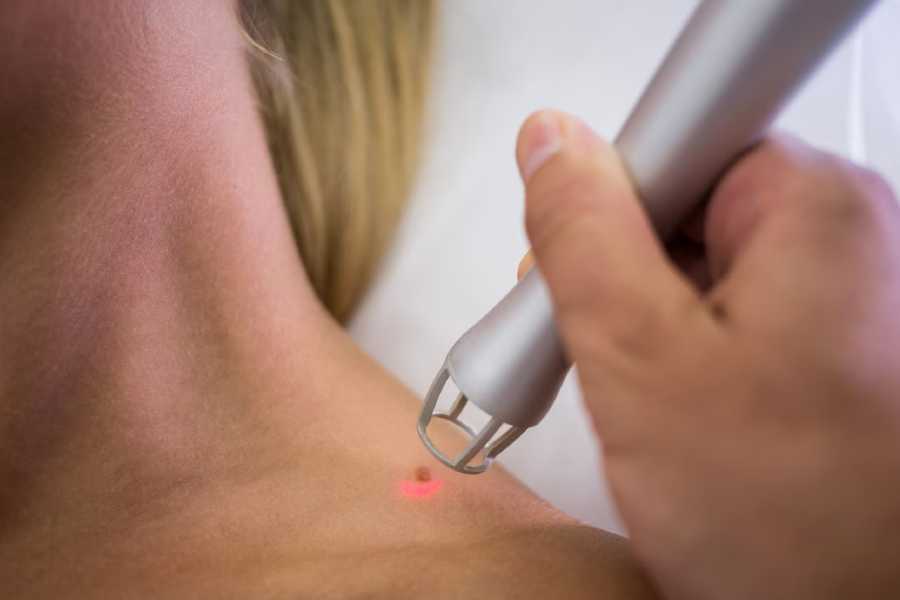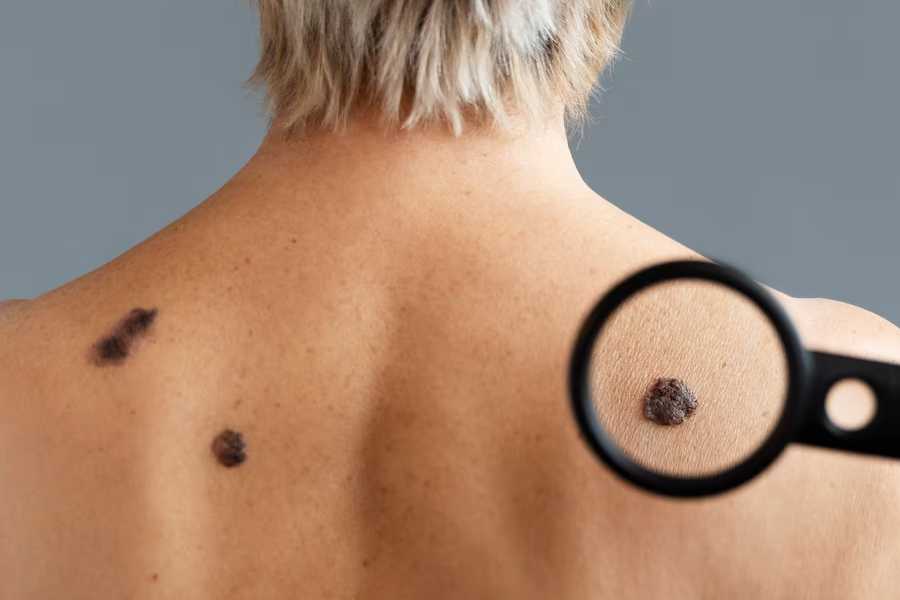Warts are one of the most common skin conditions, affecting millions of people worldwide. These unsightly growths can be embarrassing and frustrating to deal with, but fortunately, there are many effective treatments available. In this comprehensive guide, Dr. Jasdeep Sidana, a leading dermatologist, shares his expert tips on how to get rid of warts.
Understanding Warts
Warts are a common skin condition caused by the human papillomavirus (HPV). There are different types of warts that can appear on different parts of the body. Here are some common types of warts and their symptoms:
Common warts
These warts usually appear on the fingers, hands, or nails. They are typically small, firm, and rough in texture. Common warts may have black dots in the center, which are actually small blood vessels.
Plantar warts
Plantar warts appear on the soles of the feet and can be painful when pressure is applied. They may also have black dots in the center.
Flat warts
Flat warts are typically smaller and smoother than other types of warts. They often appear on the face, neck, or legs and can appear in clusters.
Genital warts
Genital warts appear in the genital and anal areas and are spread through sexual contact. They may appear as small, flesh-colored bumps or have a cauliflower-like appearance.
While most warts are harmless, they can be uncomfortable or unsightly. In some cases, they can also spread to other areas of the body or to other people. If you are experiencing symptoms of warts, seek medical attention from a healthcare professional
Common Home Remedies for Warts
Here are some common home remedies for warts:
- Duct tape method: Cover the wart with duct tape for several days, then remove the tape and gently scrape the wart with a pumice stone or emery board.
- Garlic: Rubbing a garlic clove on the wart to help dissolve it.
- Tea tree oil: Applying tea tree oil directly to the wart to help kill the virus causing it.
- Apple cider vinegar: Soak a cotton ball in apple cider vinegar and place it on the wart for several hours a day.
- Aloe vera: Applying fresh aloe vera gel directly to the wart to help soothe and heal the affected area.
- Vitamin C: Crushing a vitamin C tablet and mixing it with water to make a paste, then applying it to the wart to help boost the immune system and fight off the virus.
While there are several home remedies that have been known to be effective in treating warts, Dr. Jasdeep Sidana cautions that most of them are not helpful. It’s important to seek medical attention from a dermatologist before trying any home remedies to ensure that they are safe and appropriate for your individual needs.
Medical Treatment for Warts

If you’re dealing with persistent or painful warts, medical treatment may be necessary. There are several effective medical treatments for warts. Here are some of the most common options according to Dr. Jasdeep Sidana:
- Salicylic acid: Available over-the-counter in the form of gels, pads, and liquids. Salicylic acid works by softening the skin cells of the wart, allowing it to be removed more easily.
- Cryotherapy: Liquid nitrogen is used to freeze the wart, causing it to blister and fall off. Cryotherapy can be performed in a doctor’s office or with an over-the-counter freezing kit.
- Cantharidin: A blistering agent that is applied to the wart and covered with a bandage. The blistering agent causes the wart to blister, allowing it to be removed more easily.
- Imiquimod: A cream that stimulates the immune system to help fight the virus causing the wart. Imiquimod is usually prescribed for more severe cases of warts.
- Surgery or laser therapy: In some cases, surgical removal or laser therapy may be necessary to remove the wart. This is usually reserved for larger or more severe warts that do not respond to other treatments.
Dr. Jasdeep Sidana notes that it’s important to seek medical attention from a specialist to determine the most appropriate treatment for your individual needs. With prompt diagnosis and treatment, you can effectively manage your warts and prevent them from spreading or recurring.
Prevention of Warts
Dr. Jasdeep Sidana recommends taking steps to prevent warts from spreading or recurring. Good hygiene practices, such as washing your hands regularly and avoiding touching your face or other people’s warts, can help to reduce your risk of infection. If you have a wart, avoid sharing towels, shoes, or other personal items with others. Boosting your immune system by eating a healthy diet, exercising regularly, and getting enough sleep may also help to prevent warts.
When to See a Doctor
According to Dr. Jasdeep Sidana, it’s important to seek medical attention if you have a wart that is causing pain, bleeding, or other symptoms. You should also see a doctor if you have multiple warts if your warts are spreading rapidly, or if you have a weakened immune system. Your doctor may recommend a more aggressive treatment, such as surgery or laser therapy if your warts are particularly stubborn or resistant to treatment.
Conclusion
Warts can be a frustrating and embarrassing condition, but fortunately, there are many effective treatments available. Whether you choose to try a home remedy, over-the-counter treatment, or prescription medication, it’s important to take action to get rid of your warts. Dr. Jasdeep Sidana also highlights practicing good hygiene and taking steps to prevent warts from spreading or recurring.


